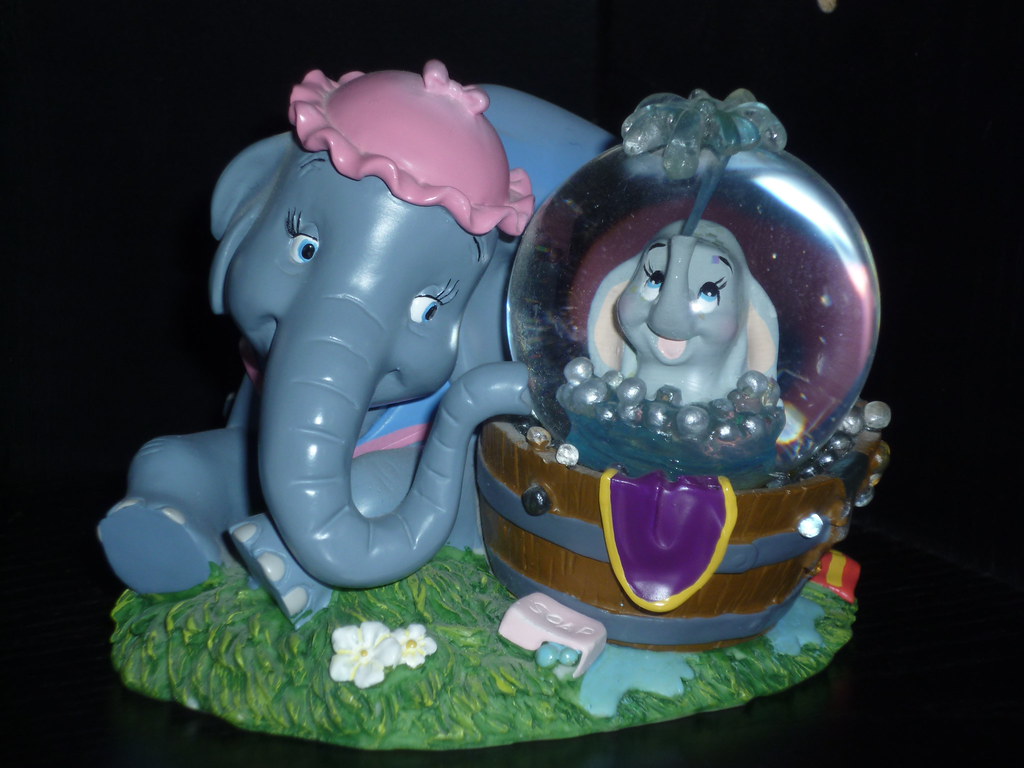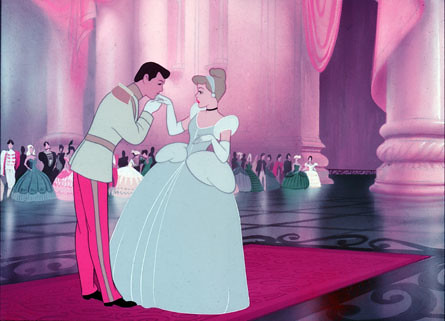Disney
has kept with the times, acknowledging the decades' worth of shifts in female
roles. Frozen has princesses that take action and responsibility for their
actions, while Wreck it Ralph and Big Hero 6 show female characters in roles
unusual for animated film -- gaming, science and technology. We see progress in
that the medium acknowledges that these women exist.
At the
same time, Disney's live action films have dived into remakes, from Sleeping
Beauty to Cinderella. They insist on rewriting animated history, to give
Maleficent depth and Cinderella's stepmother some sympathy. The princesses take
charge of their destinies when they previously didn't. With that said, I feel
that the original princesses were survivors-- they endured harsh circumstances
and remained sweet-natured people. Slowly but surely, Disney drops their
survivor narrative to suit the times, and lose a valuable, poignant quality.
.
Image source: https://i.ytimg.com/vi/LmoO_crrptQ/maxresdefault.jpg
I admit,
I have a great deal of nostalgia for these original films, despite their storytelling
and characterization flaws, since they demonstrated high quality animation and
music that is a rarity in this day and age due to cost. As a child I watched and rewatched them,
regretting the day I brought my Sleeping Beauty cassette to school and lost it,
for the animation and music have stayed with me. This nostalgia makes me wince
at the backlash towards princesses in modern days, and how parents stress that
they won’t buy princess dresses for their children in favor of better role models. I believe in princesses,
and I believe that their existence in fiction makes the world a better place.
Snow
White, Bambi, Dumbo, Sleeping Beauty, and Cinderella were Disney's original
survivors. Most of these were also princesses who in modern times are viewed as
anti-feminist. The male protagonists Dumbo and Bambi were infant animals, but
they engage in more free agency, albeit with help from their friends and family
respectively. No one ever calls Dumbo passive, because insulting an elephant
calf that has lost his mother is wrong, which the film itself notes.
.
Image source: https://c4.staticflickr.com/3/2840/10838834563_c111f41068_b.jpg
Princesses,
however, are fair game to the modern viewer, even to Disney. People ask why
Cinderella didn't rebel against her wicked step-family, or why Snow White
accepted an apple from a stranger and wanted a prince to rescue her. We forget
that Disney mainstreamed the animated film genre, and to insult the earlier
films for the characters they portrayed is quite a disgrace. Passive sexism has
reared its head and dismantled a necessary narrative.
Survivors
rarely get lauded as heroes in mainstream media, with few exceptions. That's
because survivors, by definition, have to endure in a harsh environment and
have fewer opportunities to change their situation. They have little to no
control over their circumstances, and must hold out for a drastic improvement,
or to go to desperate means. Surviving requires enduring war, death, or
despair-- and the feelings stay with the victims long after circumstances have
improved.
Image source: https://upload.wikimedia.org/wikipedia/commons/thumb/5/51/Child_survivors_of_Auschwitz.jpeg/1024px-Child_survivors_of_Auschwitz.jpeg
Most
survivors tell their story, in the hopes that others will listen, and yet the
media ignores their narratives. Some people even attempt to change the
narrative, to blame the victims. I imagine some people wonder why displaced
people in Syria or Rwanda didn't fight back against war or genocide, for
example and Lithuania has even started a campaign defaming Holocaust survivors
in 2006 that has continued to this day. We lose our humanity when we condone
such defamation and victim blaming, because we hold those who have suffered to
a high, impossible standard. Thus the survivor narrative becomes more
important, to restore our compassion for the helpless and displaced.
Snow
White was the first Disney princess, and the first animated feature film star.
She is a fourteen year old girl whose lost both her parents at a young age and
lives at her stepmother's mercy. Her stepmother, who is also the queen of the
land, forces her to dress poorly and do tiresome chores like washing the
cobblestones, and Snow White really has no other place to go. The Huntsman
reveals this when the Queen orders him to murder Snow White in the woods, and
instead he tells her to run away and never return to the castle. Her only home
is gone, horrible as it is. After she gets lost and terrified, and calms down,
she points out to her animal friends that she doesn't have a place to sleep for
the night, and asks for help. When the dwarves consider whether or not to let
her stay, after she's cleaned up their cottage and cooked dinner, she tells
them that if she leaves she'll most likely get killed. Although she puts on a
cheerful front, Snow White knows she has an unstable situation.
.
Image source: https://i.ytimg.com/vi/OCLAowUanSk/hqdefault.jpg
Most
fourteen year old girls would freak out at the thought of their guardian
attempting to murder them, and more so that no one will stop their parent.
Still more will freak out at losing the only home they have, and relying on the
mercy of strangers. Snow White does freak out a little, but she turns her
previous humiliation into a strength by offering to cook and clean for the
dwarves, even joining them in their merry song and dance. Her dreaming about a
prince rescuing her is really a dream for a proper happy ending, where she doesn't
have to fear for her life and knows that someone will love her. Snow White's
kindness ends up nearly killing her, in the end, because she cannot believe
that an old lady peddler would come and offer her a poisoned apple. She also
will not let her animal friends attack said old lady, who is the Queen in
disguise. We modern viewers call her naive for not seeing through the
convincing disguise and missing the vulture, but she also practices basic
decency on a regular basis.
Cinderella
in the original film handles a lot of burdens, not realizing how much power she
has until she has reason to rebel. Orphaned after her father dies and her
stepmother reveals herself as a cruel gold-digger, Cinderella finds herself
placed in the role of unpaid housekeeper and domestic help. This role limits
her, but also gives her a reason to wake up early each morning and greet her
relatives with kindness, even when they do not return the favor.
Image source: http://orig02.deviantart.net/fde9/f/2008/163/c/5/stained_glass_cinderella_inv__by_chibi22.jpg
Cinderella
in the original film handles a lot of burdens, not realizing how much power she
has until she has reason to rebel. Orphaned after her father dies and her
stepmother reveals herself as a cruel gold-digger, Cinderella finds herself
placed in the role of unpaid housekeeper and domestic help. This role limits
her, but also gives her a reason to wake up early each morning and greet her
relatives with kindness, even when they do not return the favor.
I'm
going to digress and let Roald Dahl explain how Cinderella ended up in her
stepmother's power, by quoting from his book Matilda: "I think that I am
trying to explain to you . . . is that
over the years I became so completely cowed and dominated . . . that when she gave me an order, I obeyed it
instantly. That can happen, you know" (Dahl 199). The quote can apply to
any victim of parental abuse, or in this case guardian abuse. Cinderella was
only a small child when her father died, and Lady Tremaine has a domineering
personality. By the time she grew up, without any inheritance or acceptance
into a university or trade, Cinderella has gotten used to the role that Lady
Tremaine has imposed upon her, and any step she takes outside of that narrow
label invites immediate suppression. When she points out that she can go to the
prince's ball and in fact has to per the royal command, for example, Lady
Tremaine makes sure that she has no time to make a new outfit, and then
encourages her stepdaughter to shred the dress that the mice and birds have
made. The film only showed several instances of such punishment for wanting to
be a normal French girl; Cinderella probably endured similar punishments for
years.
Despite
these inner and outer limitations, Cinderella remains a sweet woman who
politely starts to fight for what she deserves. The royal decree starts that
motivation to fight, so that she demands to have one evening out where she
doesn't have to be the servant girl. She also brings out the best in her
friends who want her to have that one night; the mice and birds that she feeds
and dresses end up making over a dress for her, which is quite a feat given the
dress towers over them like a poufy skyscraper. After that magical night,
Cinderella for the first time in the film disobeys orders from her stepfamily
and prepares to try on the slipper, no matter what excuses or obstacles they
throw towards to or to the inquiring Duke. What's more, the Duke and his
servant witnesses the blatant cruelty, so that her stepfamily doesn't attend
the wedding, and if one discounts the sequels, can never hurt her again.
Image source: https://c2.staticflickr.com/8/7431/14009222829_c1febb6f64.jpg
Sleeping
Beauty provides the most problematic case of a survivor's tale, because said
survivor gets little screentime and characterization, but her story matters.
Princess Aurora starts the film as a cursed infant, and she spends most of her
screen-time singing, dancing or talking to her aunts, actually her fairy
godmothers. She grows up happily in a small cottage in the woods, without the
luxuries of royal life and away from most people. Animals are her closest
companions, and she's been warned not to talk to strangers. We do know that she
trusts her aunts to have good judgment of said strangers, especially if they
dance with her in the woods, but that is about it. Yet she matters to her birth
parents, to her godmothers, and to her friends. She leaves a good mark on the
world that Maleficent wants to stamp out.
Aurora's
story matters, however, because she represents every innocent person that has
had to go into hiding for their safety, whether they are war victims or royalty
on the wrong side of politics, like Dowager Empress Marie of Russia. Her life
uproots abruptly on a day when she's supposed to be happy, and the narrative
expects her to accept that drastic change. Aurora displays stoic resignation
after an understandable burst of tears, going to the castle with her
godmothers, and crying a bit further when they offer her a crown as a final
birthday gift. Even so, she remains gracious towards her "aunts"
about the ordeal and doesn't lash out. She has to leave the cottage's safety to
return to a castle she doesn't remember, so as to prove that she will survive
the finger pricking, and for a long time after that anticipate Maleficent's
next move, for the dark fairy is vengeful and can draw from the powers of Hell.
The fact that Aurora wakes up from her enchanted sleep with a smile and
reenters royal life without batting an eye is a testament to her strength, and
ability to adapt to a new situation.
We need
the survivor narrative to remember that sometimes, all we can do in a terrible
situation is endure it until a better opportunity arrives. When you take away
that narrative, you take away that endurance, and the hope in a dire situation.
As Disney moves forward with their newest live-action additions, I hope that
they pay adequate homage to the past.






No comments:
Post a Comment